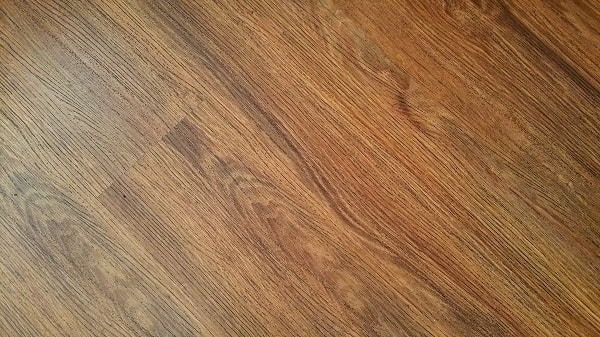by Liz Gonzales
Of the many options that you have in front of you when it comes to selecting a flooring scheme for your home, luxury vinyl plank is one that is still relatively unknown among the more common types of flooring such as ceramic tiles, linoleum, or even hardwood.
However, just because it may not be as widely known as other kinds of flooring does not mean that luxury vinyl plank shouldn't be discussed.
In fact, because it is not as popular as other kinds of flooring, luxury vinyl plank deserves even more discussion. There are situations where luxury vinyl plank is suitable and there are situations where you will want to choose a different kind of flooring. Knowing the good and bad aspects of luxury vinyl plank is very important, and they will be explored in full detail later on.
Contents
Before exploring the pros and cons of luxury vinyl plank, it's a good idea to understand what exactly luxury vinyl plank is and how it compares objectively against other types of hard surface flooring.
Knowing these differences and combining them with the pros and cons of luxury vinyl plank will give you a much better idea of whether or not you want it installed in your home or establishment.


Up until a few decades ago, ceramic tile and hardwood were the most common forms of hard surface flooring.
If you walk into any house that is just a few decades old, you'll likely see one of these types of floors. Walk into a house that is approaching a century in age, and you're almost guaranteed to see hardwood flooring.
They are still very common today, especially ceramic tile. This is because when compared to hardwood, ceramic tile is much cheaper and much easier to maintain. However, ceramic tile flooring is not impressive at all in its aesthetic value. Very few are impressed by floors with ceramic tiles, and it is very difficult to find ceramic tiles that even remotely compare to the aesthetic value of hardwood flooring.
Hardwood flooring usually looks great and can last forever - provided they are maintained constantly and properly.
If hardwood floors are not maintained constantly and properly, they will deteriorate as well as lose their aesthetic value by the score.
What if there was a floor type that could combine the aesthetics of hardwood flooring and the low maintenance approach of ceramic tile flooring? Enter luxury vinyl plank, or LVP for short.
LVP is installed similarly to hardwood flooring in that it uses planks. However, the surface of LVP is not nearly as prone to damage as hardwood flooring is. This improved durability makes it much easier to maintain than hardwood, which actually makes LVP last much longer in retrospect.
There are other things that make LVP much better than other kinds of flooring. These will be covered next.
As mentioned previously, one of the most significant advantages that LVP has over other kinds of hard surface flooring is that maintaining it is much easier than their wood and ceramic tile counterparts. But what about LVP makes it so much easier to maintain than its counterparts, and why does that make them better? This question can be answered by comparing the maintenance procedures of ceramic tiles and hardwood and measuring them against the maintenance procedures of LVP. Maintaining a hardwood floor will ensure that it lasts forever. But if you want said hardwood floor to last forever, you're going to need to commit to maintaining hardwood floors on a full time basis. This involves all kinds of activities such as sanding, resurfacing, and other procedures that can cost a lot of time and money. Maintaining ceramic tiles is not nearly as herculean a task, but it can still entail some troublesome procedures.
Anybody who has had to repair or replace a cracked tile knows all about this. Repairing a cracked tile can take a lot of time. Replacing one will cost money.
None of this is an issue when it comes to LVP.
LVP is made of reinforced wood which is much, much stronger than wood. Think of LVP as something that is a cross between plastic and wood when it comes to its durability.
Because it is water resistant and hardwood is not, LVP is much easier and cheaper to maintain than a hardwood floor ever was. And because LVP is installed in peel-and-stick, glue-down, and click-together methods, it is much easier to replace a vinyl plank than it is to replace a ceramic tile. LVP makes life much easier when it comes to installation and maintenance than its counterparts. That is what makes it so fantastic.

LVP is not perfect, however. There are a couple of things about it that can turn some away. Ceramic tiles are typically quiet when walked on. This is because ceramic tiles are very thick and are held together very tightly. While LVP provides a little more insulation and get a little less cold than ceramic tiles do, this comes at a price, and that price is increased acoustics of LVP flooring. LVP is made of material that isn't completely plastic, but also isn't totally wood either. And the way that it installs also make it a lot louder when impacted.
This can be troublesome if your LVP floor is in a high traffic area. You'll hear every footstep and if something falls onto the floor, everybody will hear it.
Because ceramic tile flooring is installed in a procedure that is much "tighter," it does not make as much noise.
Keep in mind that because LVP "clicks" together in their installation, this also means that there is less space in between them. This is what alters the acoustics a little bit.
Hardwood floors are still in high demand today because of how genuine they look.
You can usually tell the difference between a hardwood floor and an LVP floor. While they are getting better in their designs, LVP is still behind hardwood floors in terms of aesthetics.
Do not forget that LVP resembles hardwood. It is not the same as hardwood. If you get an LVP floor installed expecting it to look exactly like any given hardwood floor, you will be disappointed.
This is not to say that LVP lack in aesthetics in any way. There are plenty of LVP floors that look very impressive in their own right, but they will never be the exact same as their hardwood counterparts in terms of aesthetics.
All things considered, luxury vinyl plank is every bit as functional as ceramic tile flooring.
One thing for sure about LVP is that it is much easier to install than ceramic tile flooring. Installing LVP flooring is much less labor intensive than installing ceramic tile ever was and involves much cheaper materials than ceramic tile flooring ever did.
LVP flooring used to look like a cheap intimidation of its hardwood counterparts. And while it is true that it will never be a perfect recreation of hardwood flooring, you can be assured that LVP flooring will look nearly identical to hardwood flooring without requiring the overwhelming amounts of maintenance that hardwood floors need to hold up.
Whether you want to replace your current floors with luxury vinyl plank or not, you now understand exactly how it measures up against ceramic tiles and hardwood flooring.
Armed with the knowledge of these advantages and drawbacks, you'll be able to make an even more informed decision on whether to install luxury vinyl plank flooring or not.
 |
 |
 |
 |

About Liz Gonzales
Liz lives in a suburb in New York city.
Both of her parents are the art professors at Sate University of New York.
As such, Liz grew up with all kinds of art objects, portraits, and books laying around the home.
Liz met up with Linea through another friend in some kind of online art forum. There great minds sparkled to take their passions onto the next level @ linea.io.
 |
 |
 |
 |
You can Get FREE Gifts. Furthermore, Free Items here. Disable Ad Blocker to receive them all.
Once done, hit anything below
 |
 |
 |
 |